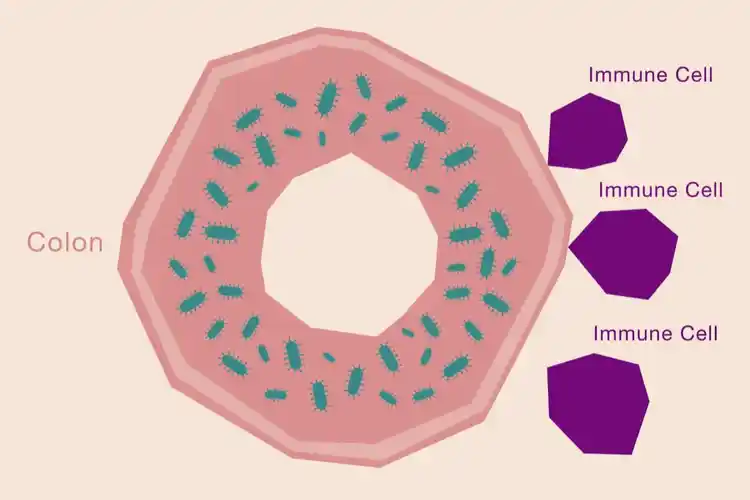Inside a Colon With Ulcerative Colitis

Hide Video Transcript
Video Transcript
SPEAKER
Ulcerative colitis is a chronic inflammatory disease of the large intestine, also known as the colon. The large intestine acts as a five foot long conveyor belt that absorbs moisture to help digest food. Normally, we have trillions of bacteria, roughly 3 pounds of it, working along the conveyor belt to help with the breakdown of food. With ulcerative colitis, the body's immune system malfunctions and triggers the wrong response. But for some people, the bacteria provokes the immune system to attack the wall of the colon and rectum, inflaming the bowel. As the inflammation spreads, the lining wears away in spots, leaving ulcers that bleed and ooze mucus or pus.
Flare ups can cause abdominal pain, cramping, and frequent diarrhea. If symptoms persist, it could lead to fever, fatigue, weight loss, and dehydration. To diagnose ulcerative colitis, doctors use blood tests, stool tests, and screening tests like colonoscopy.
While the disease can be hard to handle, doctors may recommend certain medications, dietary, and lifestyle changes to control it.
